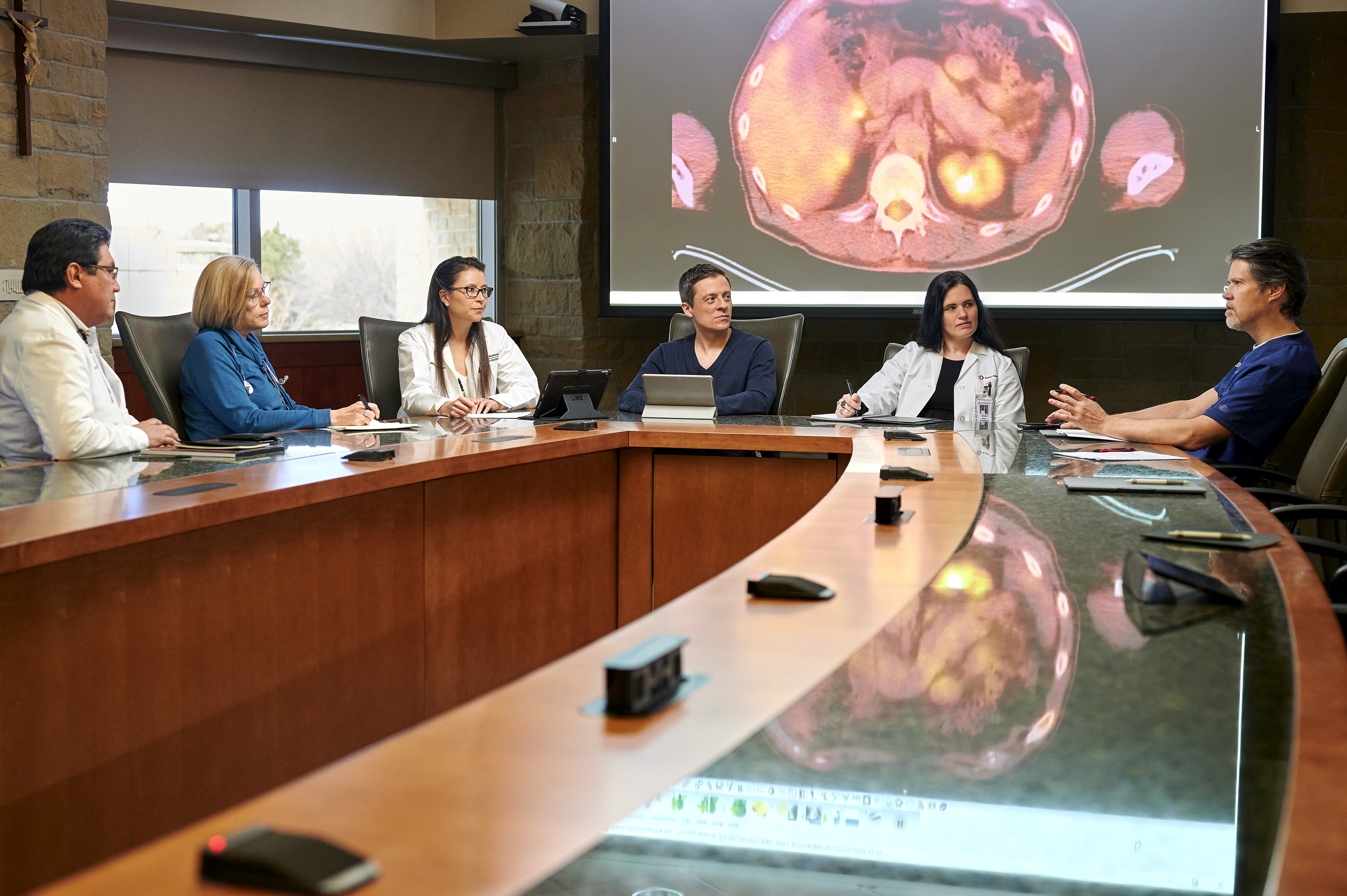Commission on Cancer Recognizes Quality of Care in Cancer Treatment
The Saint Alphonsus Cancer Institute has been granted three-year accreditation from the Commission on Cancer (CoC), a quality program of the American College of Surgeons (ACS).
To earn voluntary CoC accreditation, a cancer program must meet 34 quality care standards, be evaluated every three years through a survey process, and maintain levels of excellence in the delivery of comprehensive patient-centered care. There are only four accredited cancer programs in the state of Idaho.
“The American College of Surgeons has set very high standards for its accredited programs, and we at the Saint Alphonsus Cancer Institute are proud of our commitment to uphold these high standards. The result of this dedicated attention to the highest standards of care is better patient care. Our patients experience these benefits starting at diagnosis, through-out treatments and into survivorship,” said Dr. Amber Taylor, MD, FACS, chair of the Cancer Committee at Saint Alphonsus.
The Saint Alphonsus Cancer Institute is on the cutting edge of cancer treatments in Idaho and Eastern Oregon. Our advanced team of oncologists and surgeons utilize the latest technology and diagnostic tools like low-dose CT and 3D imaging for early detection, innovative treatments such as immunotherapies, precision radiation therapies, and integrated care plans and support programs to provide the highest quality of care for all types of cancer, treating it at the earliest stage.
“The Saint Alphonsus Cancer Institute has demonstrated an uncompromising commitment to improving survival and quality of life for patients by providing the highest-quality, patient-centered cancer care close to home,” said Odette Bolano, President and CEO of Saint Alphonsus Health System.
As an innovator in cancer care, Saint Alphonsus physicians performed the first GammaTile therapy in the Pacific Northwest, combining the highly specialized expertise of its Neuroscience and Cancer Institutes to provide targeted radiation therapy to a brain cancer patient.
Saint Alphonsus takes a multidisciplinary approach to treating cancer as a complex group of diseases that requires consultation among surgeons, medical and radiation oncologists, diagnostic radiologists, pathologists, and other cancer specialists. This multidisciplinary partnership results in improved patient care. The Cancer Institute also offers the region’s largest and most robust clinical trials program, to learn better ways to prevent, diagnose, and treat cancer.
When patients receive care at a CoC facility, they also have access to information on clinical trials and new treatments, genetic counseling, and patient centered services including psycho-social support, a patient navigation process, and a survivorship care plan that documents the care each patient receives and seeks to improve cancer survivors’ quality of life.
Like all CoC-accredited facilities, Saint Alphonsus maintains a cancer registry and contributes data to the National Cancer Data Base (NCDB), a joint program of the CoC and the American Cancer Society. This nationwide oncology outcomes database is the largest clinical disease registry in the world. Data on all types of cancer are tracked and analyzed through the NCDB and used to explore trends in cancer care. CoC-accredited cancer centers, in turn, have access to information derived from this type of data analysis, which is used to create national, regional, and state benchmark reports. These reports help CoC facilities with their quality improvement efforts. To learn more about the Saint Alphonsus Cancer Institute, visit www.saintalphonsus.org/specialty/cancer-care/.
The American Cancer Society estimates that more than 1.9 million cases of cancer will be diagnosed in 2022. There are currently more than 1,500 CoC-accredited cancer programs in the U.S. and Puerto Rico.
 Physicians at the Saint Alphonsus Cancer Institute review and consult on cases in a Tumor Board meeting
Physicians at the Saint Alphonsus Cancer Institute review and consult on cases in a Tumor Board meeting
